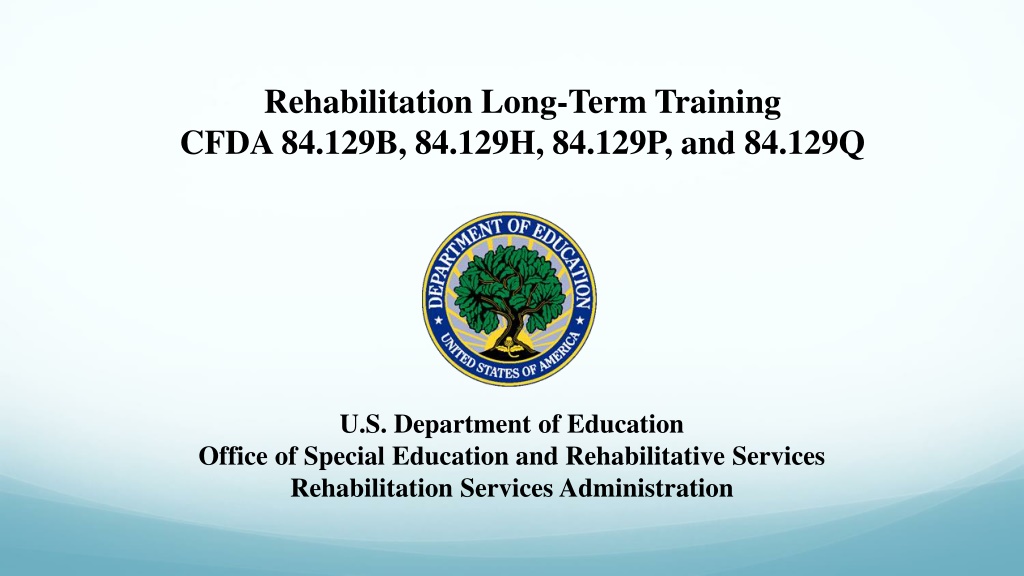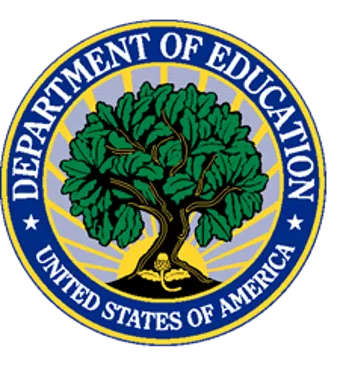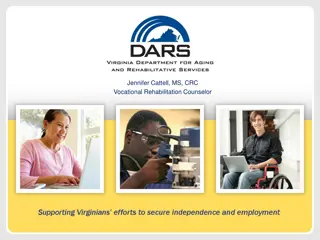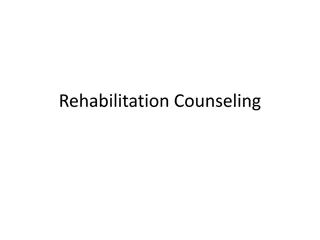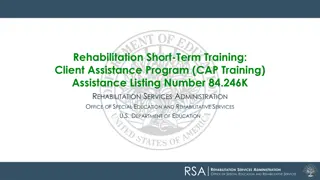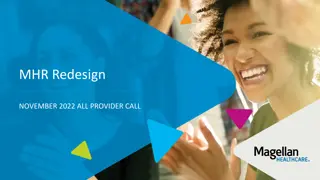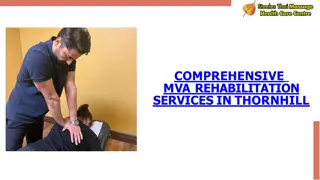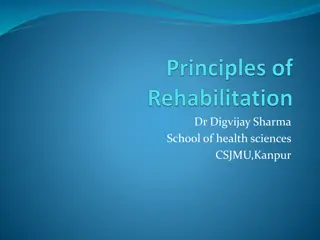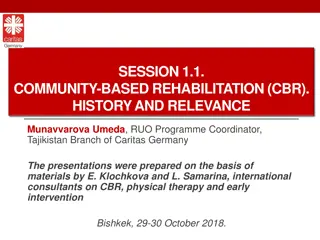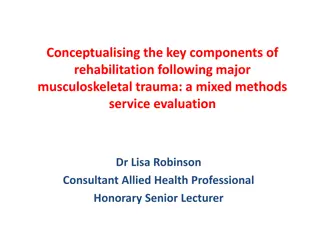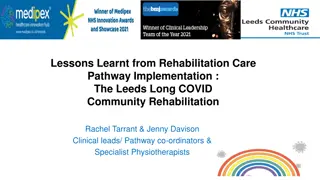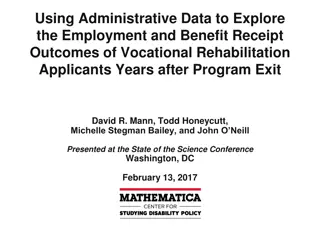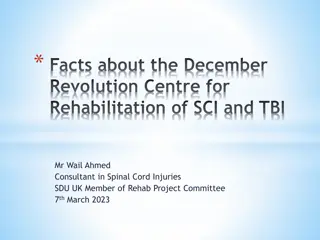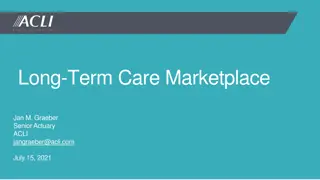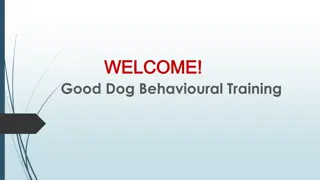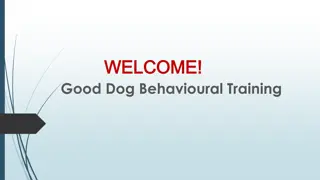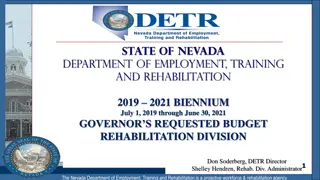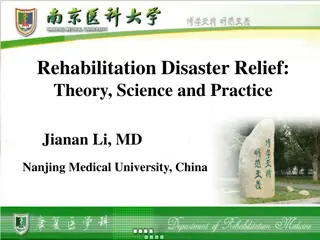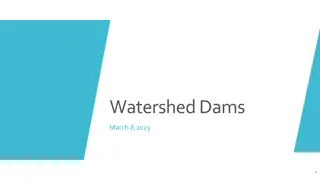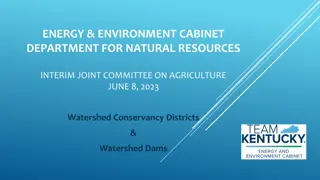Rehabilitation Long-Term Training Program Overview
The Rehabilitation Long-Term Training Program, managed by the U.S. Department of Education, aims to address personnel shortages in vocational rehabilitation services for individuals with disabilities. It offers academic training, particularly in vocational rehabilitation counseling, to enhance employment outcomes and raise expectations for people with disabilities. The program provides specific grant opportunities in areas such as mental illness, blindness, and deafness, with varying maximum award amounts and contact information for further inquiries.
Download Presentation

Please find below an Image/Link to download the presentation.
The content on the website is provided AS IS for your information and personal use only. It may not be sold, licensed, or shared on other websites without obtaining consent from the author.If you encounter any issues during the download, it is possible that the publisher has removed the file from their server.
You are allowed to download the files provided on this website for personal or commercial use, subject to the condition that they are used lawfully. All files are the property of their respective owners.
The content on the website is provided AS IS for your information and personal use only. It may not be sold, licensed, or shared on other websites without obtaining consent from the author.
E N D
Presentation Transcript
Rehabilitation Long-Term Training CFDA 84.129B, 84.129H, 84.129P, and 84.129Q U.S. Department of Education Office of Special Education and Rehabilitative Services Rehabilitation Services Administration
Todays Presenters Michael Broschi, Management Program Analyst Kristen Rhinehart-Fernandez, Program Specialist 2
Presentation Overview Overview of Notice Inviting Applications (NIA) Resources Competition manager contact information 3
Notice Inviting Applications Overview of Notice Inviting Applications (NIA) 4
Purpose of the Program The Rehabilitation Long-Term Training Program is designed to support projects that provide academic training in areas of personnel shortages identified by the Secretary to increase the number of personnel trained in providing vocational rehabilitation services to individuals with disabilities. Specifically, this program provides master s degrees in vocational rehabilitation counseling, with the expectation that the scholars will work as vocational rehabilitation counselors in State Vocational Rehabilitation agencies or related agencies and ultimately improve employment outcomes and raise expectations for all people with disabilities, their families, their communities, and the Nation. 5
Award Information Chart Maximum Award (Budget Period of 12 Months) Estimated Number of Awards Project Period Program For Further Information Contact 84.129B Long Term Training Rehabilitation Counseling Up to 60 months Cassandra Shoffler, 202-245-7827, Cassandra.shoffler@ed.gov, PCP, room 5122 29-30 $200,000 84.129H Long Term Training Mental Illness Up to 60 months Contact: Darryl Glover, 202-245-7339, Darryl.Glover@ed.gov, PCP, room 5070C 12 $150,000 84.129P Long Term Training Blindness Up to 60 months Karen Holliday, 202-245-7318, Karen.Holliday@ed.gov, PCP, room 5090 9 $150,000 84.129Q Long Term Training Deafness Up to 60 months Cassandra Shoffler, 202-245-7827, Cassandra.shoffler@ed.gov, PCP, room 5122 2 $150,000 6
Award Information 1/3 There is one Notice Inviting Applications for this program. Within the Notice there are two absolute priorities: o Absolute Priority 1: 84.129B is for Vocational Rehabilitation Counseling. o Under this priority, the Department funds programs leading to a master s degree in vocational rehabilitation (VR) counseling. The goal of this priority is to increase the skills of VR counseling scholars so that upon successful completion they are prepared to effectively meet the needs and demands of consumers with disabilities and employers. o Absolute Priority 2: 84.129 Rehabilitation Specialty Areas o Under this priority, the Department funds programs leading to a master s degree or certificate in one of three specialty areas: Rehabilitation of Individuals Who Are Mentally Ill , Who ae Blind or have Vision Impairments, and Who are Deaf or Hard of Hearing. o The goal of this priority is to increase the skills of scholars in these rehabilitation specialty areas so that, upon successful completion of their master s degree or certificate programs, they are prepared to effectively meet the needs and demands of consumers with disabilities. 7
Award Information 2/3 Invitational Priority Self-Employment, Business Ownership, and Telecommuting: Within these two absolute priorities, we are particularly interested in applications that address the following invitational priority. Invitational Priority: Under 34 CFR 75.105(c)(1) we do not give an application that meets this invitational priority a competitive or absolute preference over other applications. Applications that demonstrate through curriculum and instructional materials that the training to VR counselors includes information related providing VR services to individuals with disabilities pursuing self-employment, business ownership, and telecommuting. 8
Award Information 3/3 There are two separate Application Packages for this program. Please make sure you are reviewing the correct package. 1) There is one Application Package for CFDA 84.129B 2) There is one Application Package for CFDA 84.129 H, P, & Q. The application package is the same for each of these three alphas. An application package will be posted for each alpha in Grants.gov You may apply for more than one alpha under this program but you must submit a separate application for each one. 9
Eligibility Information Eligible Applicants States and public or private nonprofit agencies and organizations, including Indian Tribes and institutions of higher education. 10
Cost Share and Match 1/2 Cost sharing of at least 10 percent of the total cost of the project is required of grantees under the Rehabilitation Long-Term Training Program. The Secretary may waive part of the non-Federal share of the cost of the project after negotiations if the applicant demonstrates that it does not have sufficient resources to contribute the entire match (34 CFR 386.30). The Secretary does not, as a general matter, anticipate waiving this requirement in the future. Furthermore, given the importance of matching funds to the long-term success of the project, eligible entities must identify appropriate matching funds in the proposed budget. 11
Cost Share and Match 2/2 The selection criteria include factors such as the adequacy of support, including facilities, equipment, supplies, and other resources, from the applicant organization or the lead applicant organization and the relevance and demonstrated commitment of each partner in the proposed project to the implementation and success of the project, which may include a consideration of demonstrated matching support. 12
Notice of Intent to Apply The Department will be able to review grant applications more efficiently if we know the approximate number of applicants that intend to apply. Therefore, we strongly encourage each potential applicant to notify us of their intent to submit an application. To do so, please email the program contact person listed under FOR FURTHER INFORMATION CONTACT with the subject line Intent to Apply, and include the applicant s name and a contact person s name and email address. Applicants that do not submit a notice of intent to apply may still apply for funding; applicants that do submit a notice of intent to apply are not bound to apply or bound by the information provided. 13
Application and Submission Information Application Submission Instructions: For information on how to submit an application please refer to the Common Instructions for Applicants to Department of Education Discretionary Grant Programs, published in the Federal Register on February 13, 2019 (84 FR 3768) and available at: https://www.govinfo.gov/content/pkg/FR-2019-02- 13/pdf/2019-02206.pdf, which contain requirements and information on how to submit an application. 14
Application Review Information 1/4 Selection Criteria The selection criteria for this competition, have a maximum score of 100 points, and are as follows: Relevance to State-Federal vocational rehabilitation service program. (10 points) Nature and scope of curriculum. (20 points) Quality of project services. (25 points) Quality of project personnel. (10 points) Adequacy of resources. (20 points) Quality of the management plan. (15 points) 15
Application Review Information 2/4 Review and Selection Process Review and Selection Process: Past performance of the applicant in carrying out a previous award may be considered when reviewing the applications. Failure to submit a timely performance report or submission of a report of unacceptable quality may also be considered. Various assurances are required, including those applicable to Federal civil rights laws that prohibit discrimination in programs or activities receiving Federal financial assistance from the Department. (34 C.F.R. 100.4, 104.5, 106.4, 108.8, and 110.23). 16
Application Review Information 3/4 Review and Selection Process Review and Selection Process: In addition to the selection criteria listed in 75.210 and part 386, the Secretary, in making awards under this program, considers such factors as The geographical distribution of projects in each Rehabilitation Training Program category throughout the country; and o That will be applied to fund out of rank order if the top ranked applications do not represent a geographical distribution throughout the country. The past performance of the applicant in carrying out similar training activities for previously awarded grants may be considered when reviewing the applications, as indicated by such factors as compliance with grant conditions, soundness of programmatic and financial management practices and attainment of established project objectives. These criteria will be used after nonfederal reviewers score the applications. o This criterion will be applied to all applications that are recommended for funding. Failure to submit a timely performance report or submission of a report of unacceptable quality may also be considered. Various assurances are required, including those applicable to Federal civil rights laws that prohibit discrimination in programs or activities receiving Federal financial assistance from the Department. 17
Application Review Information 4/4 Risk Assessment and Special Conditions Risk Assessment and Special Conditions: Before awarding grants under this competition the Department conducts a review of the risks posed by applicants. Specific or high-risk conditions may be imposed on a grant if: othe applicant or grantee is not financially stable; ohas a history of unsatisfactory performance; ohas a financial or other management system that does not meet the standards; ohas not fulfilled the conditions of a prior grant; or oor is otherwise not responsible. 18
Award Administration Information 1/3 Award Notices Award Notices: If your application is successful, we will notify your U.S. Representative and U.S. Senators and send you a Grant Award Notification (GAN); or we may send you an email containing a link to access an electronic version of your GAN. We may notify you informally, also. If your application is not evaluated or not selected for funding, we notify you. 19
Award Administration Information 2/3 Administration and National Policy Requirement Administrative and National Policy Requirements: We identify administrative and national policy requirements in the application package and reference these and other requirements in the Applicable Regulations section of this notice. We reference the regulations outlining the terms and conditions of an award in the Applicable Regulations section of this notice and include these and other specific conditions in the grant award notification (GAN). The GAN also incorporates your approved application as part of your binding commitments under the grant. 20
Award Administration Information 3/3 Reporting Reporting: If you apply for a grant under this competition, you must ensure that you have in place the necessary processes and systems to comply with the reporting requirements. At the end of your project period, you must submit a final performance report, including financial information. If you receive a multiyear award, you must submit an annual performance report that provides the most current performance and financial expenditure information. Annual project progress toward meeting project goals must be posted on the project website or university website. For specific requirements on reporting, please go to www.ed.gov/fund/grant/apply/appforms/appforms.html 21
GPRA Measures Government Performance and Results Act of 1993 (GPRA) Measures: For the Rehabilitation Long-Term Training program, a grantee must collect information on The percentage of master's level counseling graduates fulfilling their payback requirements through qualifying employment. The percentage of master's level counseling graduates fulfilling their payback requirements through qualifying employment in State vocational rehabilitation agencies. The Federal cost per master's level Rehabilitation Services Administration (RSA)-supported rehabilitation counseling graduate. Grantees are required to report annually to RSA on these data. 22
Program Measures Program Measures that apply to the Rehabilitation Long-Term Training Program: Program Measure 1: Number of scholars enrolled during the reporting period. Program Measure 2: Number of scholars who dropped out or were dismissed from the program during the reporting period. Program Measure 3: Number of scholars who graduated with a master s degree from the program during the reporting period. Program Measure 4: Number of scholars who obtained employment in a State Vocational Rehabilitation agency during the reporting period. Program Measure 5: Number of scholars who maintained or advanced in their employment in a State Vocational Rehabilitation agency during the reporting period. Each grantee must annually report the data needed to measure its performance through the Annual Performance Reporting Form. 23
Other Information 1/2 Accessible Format: Individuals with disabilities can obtain the NIA and a copy of the application package in an accessible format upon request to Cassandra P. Shoffler, U.S. Department of Education, 400 Maryland Avenue, SW, room 5122, Potomac Center Plaza, Washington, DC 20202-2800. Telephone: (202) 245-7827. Email: cassandra.shoffler@ed.gov. If you use a TDD or a TTY, call the FRS, toll free, at 1-800-877-8339. Electronic Access to the NIA: The official version of the NIA is published in the Federal Register at www.gpo.gov/fdsys. You may also access documents of the Department published in the Federal Register by using the article search feature at: www.federalregister.gov. 24
Other Information 2/2 The application narrative (Part III of the application) is where you address the selection criteria. Application narrative: recommend limiting to no more than 45 pages and use the following standards: o A page is 8.5" x 11", on one side only, with 1" margins at the top, bottom, and both sides. o Double space (no more than three lines per vertical inch) all text in the application narrative o Use a font that is either 12 point or larger or no smaller than 10 pitch (characters per inch). Use one of the following fonts: Times New Roman, Courier, Courier New, or Arial. The recommended page limit does not apply to Part I, the cover sheet; Part II, the budget section, including the narrative budget justification; Part IV, the assurances and certifications; or the one-page abstract, the resumes, the bibliography, or the letters of support. However, the recommended page limit does apply to all of the application narrative. 25
RSA Resources Resources 26
Reference Documents Notice Inviting Applications (NIA) Common Application Instructions https://www.govinfo.gov/content/pkg/FR-2019-02-13/pdf/2019- 02206.pdf Application Package (see grants.gov) Please read the Dear Applicant Letter for important reminders Grants.gov Grantmaking at ED https://www2.ed.gov/fund/grant/about/grantmaking/grantmaking.pdf. 27
A few more reminders Consult the NIA to review the Program Authority and Applicable Regulations for your specific program. The application deadline is 11:59:59 p.m. Eastern Time. Remember to access the General Information for RSA Discretionary Grant Competitions webinars https://ncrtm.ed.gov/RSAGrantInfo.aspx Register early. Grants.gov may take five or more business days to complete. Submit early. Don t wait until the last day to submit your application. Grants.gov will put a date/time stamp on your application and then process it after it is fully uploaded. Verify submission was correct. Verify that grants.gov received your submission on time and that it was validated successfully. 28
Competition Manager Cassandra P. Shoffler U.S. Department of Education 400 Maryland Avenue, SW, room 5122 Potomac Center Plaza, Washington, DC 20202-2800 Telephone: (202) 245-7827 Email: cassandra.shoffler@ed.gov If you use a telecommunications device for the deaf (TDD) or a text telephone (TTY), call the Federal Relay Service (FRS), toll free, at 1- 800-877-8339. 29
Thank You! 30
